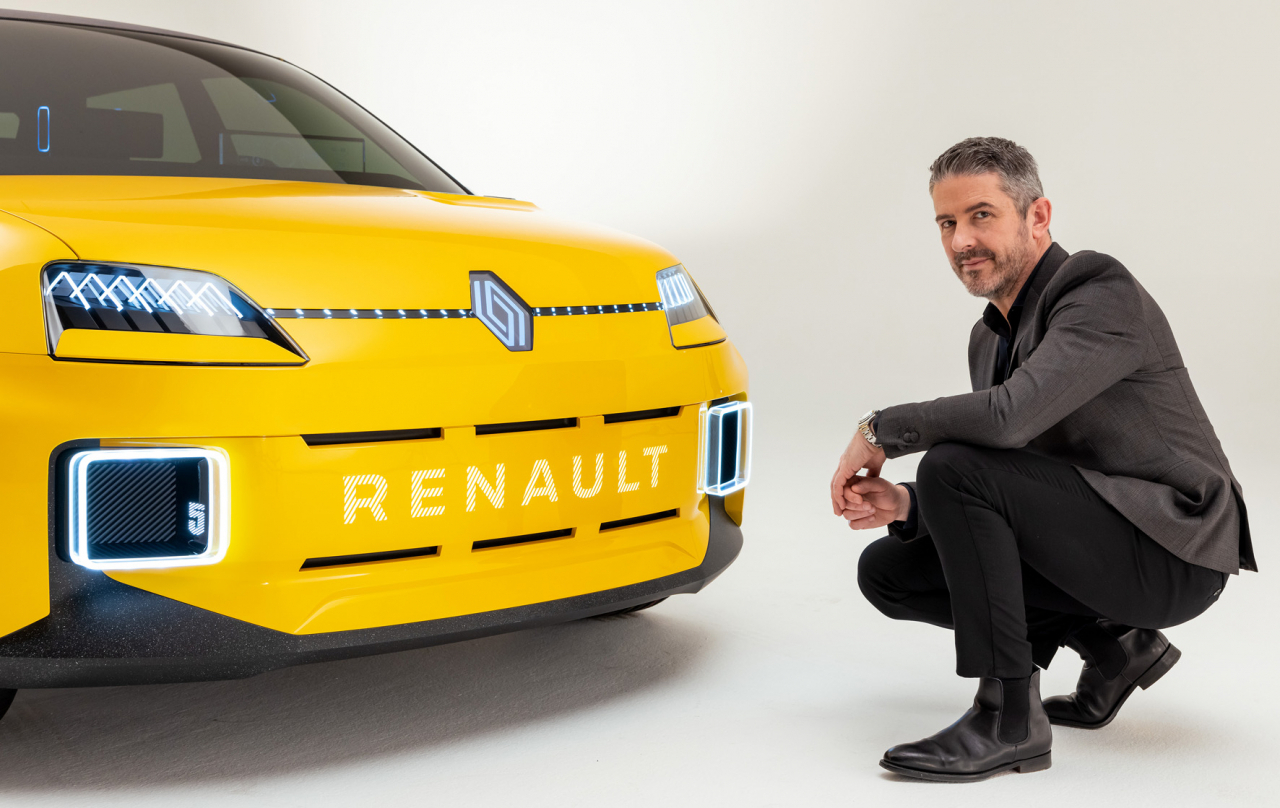
 |
| Gilles Vidal, vice president of design at Renault Group, poses beside the Renault 5 E-Tech, a compact electric vehicle that debuted as a concept car in 2021 and was officially unveiled at the Geneva International Motor Show in February this year. (Renault Korea) |
Renault Group has been reshaping its brand with a strong emphasis on the balanced design of analog and digital elements, led by the group’s Design Vice President Gilles Vidal, a renowned figure in automotive design.
Renault's design transformation began in 2021 with the introduction of its "Nouvelle Vague" brand strategy, meaning “new wave” in French, aiming to craft the next generation of stylish, modern vehicles for Renault. This effort bore fruit when the Renault Scenic E-Tech electric was named European Car of the Year 2024 at the Geneva Motor Show.
Gilles Vidal is central to Renault's design evolution. Born in France in 1972, he studied at the Art Center College of Design in Switzerland. His career began at Citroen, where he contributed to models like Berlingo and Saxo. He then moved to Peugeot, where as Design Director, he led a substantial design overhaul, introducing more dynamic and visually appealing models.
Vidal joined Renault in November 2020, and his first major project was the Scenic Vision concept car. This concept car emphasized sustainability and innovation, pointing to the future direction of design for Renault. He also led the design of the Renault 5 E-Tech, an electric vehicle that combines Renault’s historical design elements with the latest technology and trends.
In April, Vidal visited Korea to articulate his design philosophy, which prioritizes staying adaptable to future design trends and incorporating new technologies as assets rather than seeing them as competitors. He believes in creating consistent designs where the car's front, proportions and interior details are all in sync, and emphasizes a warm and inviting interior for occupants, as drivers spend significant time inside their vehicles. To achieve this, he uses a mixture of materials and avoids over-reliance on digital screens, advocating a balance between analog and digital elements.
He leads Renault's global design strategy and co-manages the Renault Design Center Seoul in Korea and the Renault Design Center LatAm in Brazil, responsible for developing future flagship models for global markets. Vidal commended the contributions of Korean designers during the April interview.
“Korean designers bring a thoughtful and passionate perspective to their work, and their execution is incredibly disciplined and well-organized,” he said.









